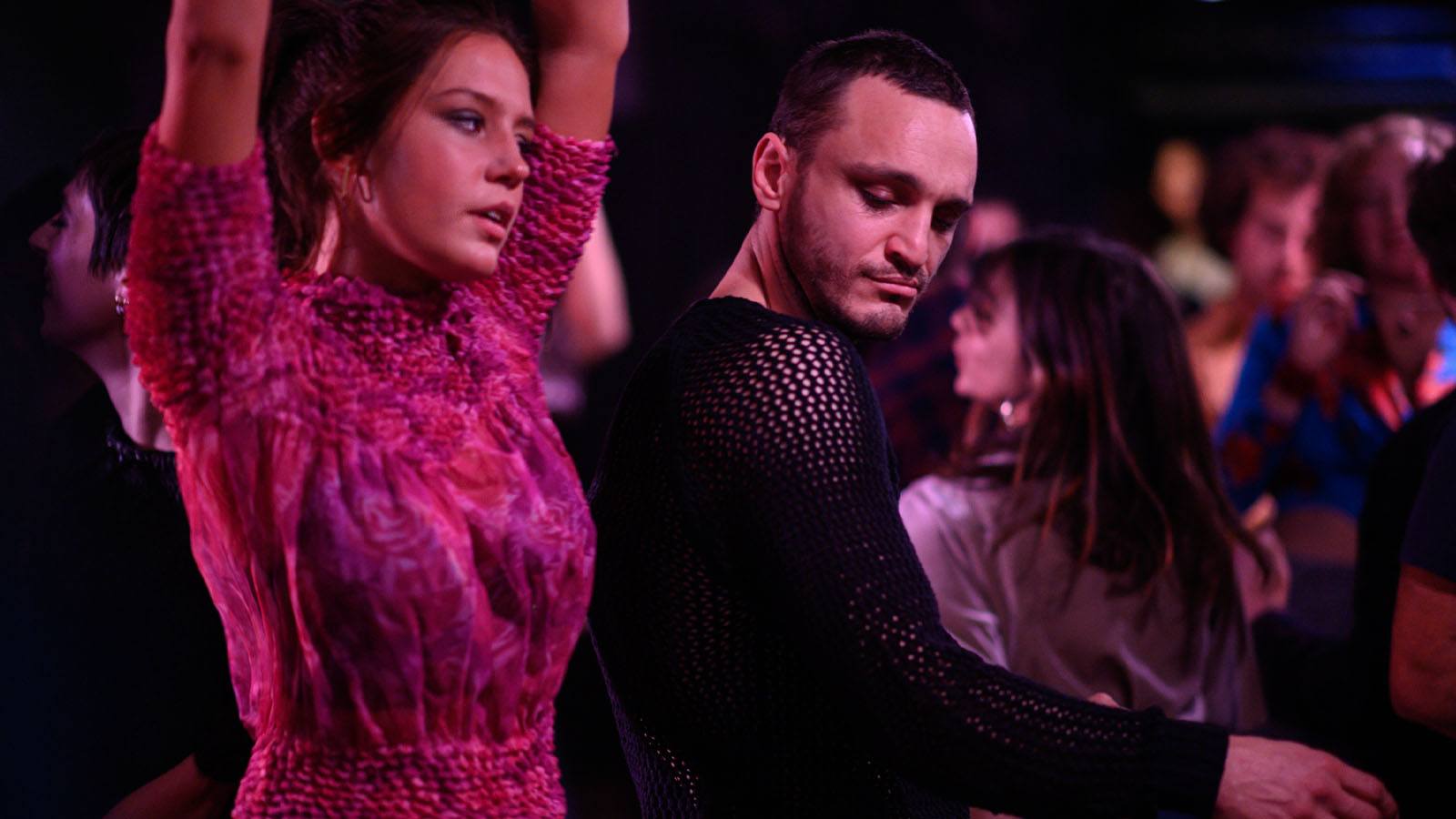
The story of a couple who, after time and life take their toll on their romance, are drawn away from each other by new loves is one that is familiar in film. The fact that Tomas (Franz Rogowski) is drawn away from his husband of 15 years, Martin (Ben Whishaw), by a beautiful, middle class young woman named Agathe (Adèle Exarchopoulos) despite her skepticism of him…well, that is also not entirely unique in the history of the love triangle film. However, in Passages, Ira Sachs (Keep the Lights On, Love Is Strange) does find something unique: a way to tell a story that honors its characters’ pain and frustration while still managing to have some hilarious moments. Tomas is a character who seems incapable of understanding the impact of his actions and seeing the full humanity of those he is supposedly in love with, but this story somehow allows us to understand him while also pushing him to extremes that cannot help but be hilarious.

It doesn’t seem to me that Passages is a film about a character, Tomas, who is incapable of love. There is something between him and Martin that is tender and real, and both Rogowski and Whishaw bring a depth and chemistry to their roles that sells their relationship, even as we see it becoming untenable. Fifteen years of marriage comes easily to some and with great effort to others, and it is clear that there are aspects of their personalities and lifestyles that are starting to wear on each other in the course of their life together. When Tomas meets Agathe, it is clear, at least to her, that what is at stake is not love, but lust. Tomas has hungry eyes, Agathe has a need for something new, and they find each other. She is at first deeply skeptical of Tomas’ need to escalate their affair into a love story, but Tomas is overwhelming in his passion and certainty. Agathe goes forward despite seeing how Tomas floats with his whims; perhaps it is his cultured, artistic nature, or her need for some new thing, but somehow, she ends up wrapped up in his web.
There is some confusion between these folks about identity (and not just sexual identity). Tomas is not just attracted to Agathe, but to the idea that perhaps he can enjoy being with a woman in the first place. When he is filled with jealousy as Martin lives life without him, this is also a source of fear for him. Sachs plays the moment he pleads this feeling with Martin perfectly, letting us see that what is at stake for Tomas is not really the authenticity of his sexuality, but his access to whatever he wants, whenever he wants. That is just one identity at play; the film is packed with questions of class, culture, art, and the ways different styles of living can come in conflict with each other. When Agathe is his indulgence, his way of injecting excitement into a life he worries has become boring, Tomas finds her enchanting. The moment she has a real life beyond him, with a family and friends who love her, he is bored and even repulsed.

The complexity and, most importantly, the tragedy of the these confused relations created by Tomas are taken seriously in the film. Martin and Agathe are real people. They have their own identities and desires and they do not exist purely for Tomas’ indulgence, nor for the audience. Yet, somehow, the film takes what should, in a way, be a horror story (being connected to perhaps one of cinema’s greatest narcissists) and manages to find the humor therein. The major source of this was Tomas himself. Yes, we see him as vulnerable and relatable at times, but ultimately, his self involvement is ludicrous. He thinks he is so charming and interesting, but he seems ridiculous in the ways he cannot understand others and what they want.
Passages is perhaps a little longer than it needs to be, but otherwise, I was thoroughly entertained and impressed by the film. Our leads are simply perfect and while I have been a fan of Exarchopoulos for some time, I was largely unfamiliar with Rogowski and he is truly amazing in the film. I understand why people love him and I understand why people hate him. It is a textured and thoughtful portrayal of a character who could easily become an unrealistic caricature. There is an element to Passages that feels like a comedy of errors, but what that style usually lacks is true empathy. This film manages to push Tomas’ behavior into truly mocking territory while delivering some authentic melancholy. Being Tomas is not fun, but loving him or even knowing him can be much worse. Watching Passages can hurt at times, but is ultimately a delight.





